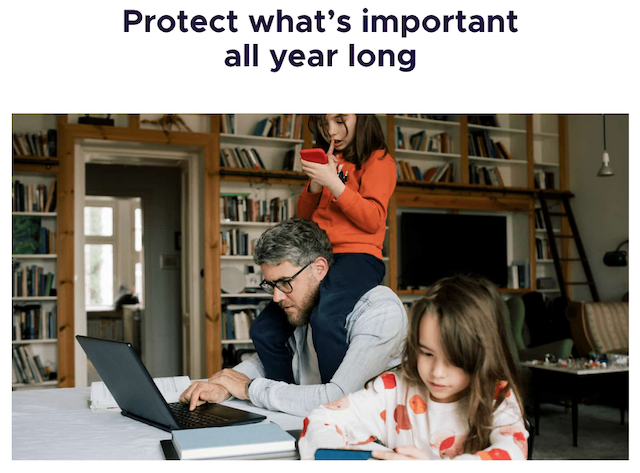
image from Mozilla Foundation’s promotion for their VPN product; the image is not on their site, and only appears on the start tab when upgrading your Firefox version
This morning when I updated to the latest version of Firefox, a start tab opened with the photo above at the top of it. It’s a promotion for Mozilla VPN.
For anyone not aware, Firefox browser is the foundational product of Mozilla Foundation, a non-profit organization “dedicated to putting you in control of your online experience and shaping the future of the web for the public good”. The company gets most of its money from ‘royalties’ from the big search engines, which then get to be the ‘default’ search engine for Firefox browser users. It uses that money to fund product enhancements and developments, and on a number of advocacy programs that focus on privacy, equitable and affordable access, interoperability and transparency, and concerns about unregulated AI.
I really admire what the company does, and the principles it operates by.
It has a manifesto with a similar focus, though it is notably silent, or agnostic, on two major issues: (1) mis- and disinformation and censorship, and (2) psychological damage from internet addiction and from apps and sites that enable hate, bullying and other forms of online abuse. I don’t blame Mozilla for skirting these critical issues, since no one seems to have any viable ideas to address them.
I found the photo above simultaneously one of the cleverest and one of the most troublesome I’ve ever seen, for the following reasons:
- The headline is ostensibly about the product — Mozilla VPN privacy software — that it is promoting. But the photo suggests that what’s “important” to protect is your family, and implies that somehow signing up for Mozilla VPN will help achieve that. VPNs help protect you from hackers, advertisers, and snoops tracking your online history, and from unscrupulous ISPs selling your browsing history. And they can get you access to sites blocked or censored in your country (yay!), and allow you to bypass restrictions on downloading, to pirate content, to spoof your location, and, depending on your browser, to anonymously access the so-called “dark web”, unindexed sites which sell illegal goods and services. Is VPN really necessary to protect your family?
- The photo shows what appears to be a responsible caring dad and his two daughters. But despite their apparent ‘closeness’, look where their attention is focused.
- The photo shows a whole wall of books in the background, so large you need a ladder to access some of them, as well as either a board game or a construction set. The implications are obvious, especially for readers who can’t even dream of being able to afford this level of material comfort for their children, or who have to work multiple jobs — and not from home — that keep them from spending time with their children they’d dearly love to spend.
- Where’s mom?
There’s nothing terrible about this photo. I’ve seen much worse, more manipulative ads by other companies. It pulls you in; in a way, it’s charming — if only every home and every family was this comfortable, engaged, and apparently loving!
Still, I found the photo unsettling.
I’d be curious to know if others had a reaction to it.





I didn’t ponder it nearly as long as you did. The only thing that I saw, which obliterated any other takeaway, is what could be called either the blue glare or the blue stare of three individuals transfixed by their individual screens. Not a clever construction but rather sad commentary.